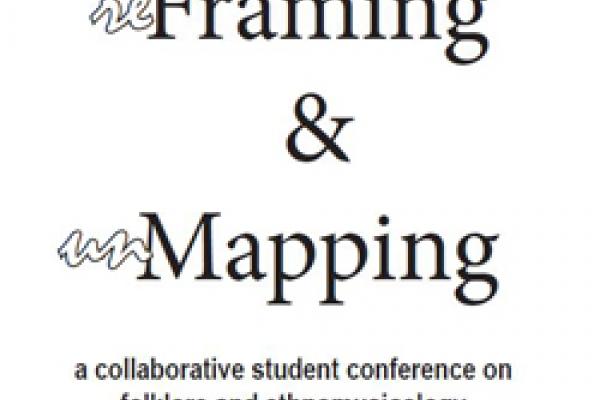
Keynote address by
Dr. Michael Ann Williams
(Western Kentucky University)
We are happy to announce the 5th annual collaborative conference between The Ohio State University Folklore Student Association and the Folklore & Ethnomusicology Student Associations at Indiana University. This conference aims to create a space for graduate and undergraduate students to share their research in folklore, ethnomusicology, cultural studies, material culture, performance studies, and related disciplines connected to the study of academic and vernacular interpretation(s) of everyday life.
In “A Theory of Play and Fantasy” (1955), Gregory Bateson makes reference to an Andaman Island peace-making ceremony in which participants strike one another to enact, then dispel their anger. Investigating the fine line between play and aggression, Bateson writes, “(t)he discrimination between map and territory is always liable to break down, and the ritual blows of peace-making are always liable to be mistaken for the ‘real’ blows of combat.” Bateson’s example leads us to think about the “maps” that organize our interpretations of cultural “territories”: systems of meaning, practices of communication, and theoretical and ideological frames. Inspired by Bateson’s seminal text, this year’s conference seeks to explore the following questions and themes:
- What devices do folklorists and ethnomusicologists use to (re)frame and (un)map? How are these concepts used to decontextualize, entextualize, and recontextualize?
- How do ideological frames and maps translate to concrete realities, and vice versa?
- What effect do frames and maps have on folk groups, music and culture?
- What are the politics of mapping? How do previously unmappable things become mappable? How do things fall off the map?
- How do frames and maps work as boundaries that define what lies within and without, sameness and difference?
- How have concepts of performance, play, ritual and literal frames affected theory and practice in folklore and ethnomusicology?
- How have frames and maps guided thinking about space, place, land(scape), region and nation-state, and how have the latter complicated our understanding of the former?
- In what other ways does current research engage with (re)framing and (un)mapping?
*We also welcome submissions on other topics.
The conference will have four opportunities for participation: 20-minute paper presentations, a poster session, 10-minute experimental panels for works-in-progress, and a discussion forum for all attendees. We will be accepting 250-word abstracts for all presentation formats, apart from the forum.
Abstracts must be submitted by Friday, November 25, 2011. Please email submissions to osu.iu.2012conference@gmail.com.
Register for this event for free on Eventbrite. For more information on the details of the conference visit the Student Conference page in the coming months.
[pdf] - Some links on this page are to .pdf files. If you need these files in a more accessible format, please contact patterson.493@osu.edu. PDF files require the use of Adobe Acrobat Reader software to open them. If you do not have Reader, you may use the following link to Adobe to download it for free at: Adobe Acrobat Reader.
